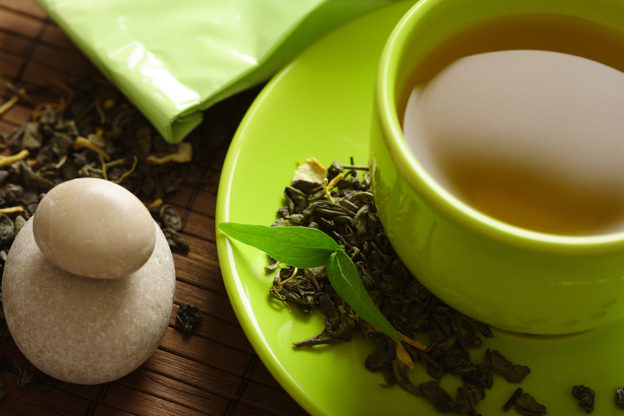By David Blyweiss, M.D., Advanced Natural Wellness
March 19, 2021
I drink two to three cups of green tea each day.
I like to mix and match them. I have matcha green tea in the morning, a jasmine green tea mid to late morning and then in the afternoon I’ll go with one that’s decaffeinated. (That way I won’t have the caffeine in my system at bedtime.)
It’s not just the flavor I’m looking for, it’s all of the health benefits that green tea offers.
It helps wake you up. It gives you focus and energy. Green tea is great for your memory, cardiovascular system and helps keep your blood sugar steady. It can even support weight loss.
But these days, there’s another reason why I’m drinking several cups green tea each day, and you should be drinking it to.
That’s because there’s something you probably don’t know about green tea. Most people don’t.
Green Tea in the Battle against Viral Infections
Do you remember when everyone was talking about hydroxychloroquine last year?
The reason it got so much attention is because hydroxychloroquine (HCQ) acts as something called an ionophore. What an ionophore does is facilitate the transport of things through the cell membrane into the cell.
Specifically, the researchers wanted HCQ to bring zinc into the cells. That’s because you need zinc in your white blood cells to help fight off viruses like Covid-19.
It was a good idea, but the drug had a lot of side effects. Some of them were life threatening, and not really something you would want to deal with.
Well guess what else is an ionophore?
Green tea!
It’s true. Green tea is a natural ionophore.
Are You Suffering From...
- Love handles and a pot belly
- Romance that isn't what it used to
- Forgetfulness and inattention
- Low (or no) strength and endurance
- A sex drive that's shifted into neutral...or worse
If so...you may have Mature Male Burnout. Click here to discover more about this unique condition and what you can do about it.
When you take your zinc with green tea, you’ll get more zinc into your white blood cells where it can help protect you from any potential viral infections.
You can thank epigallocatechin-3-gallate (EGCG) for this. Green tea is abundant in this catechin, which acts as an ionophore and has extremely positive effects on your health. EGCG is such a potent healer that it even works at a genetic level to turn on genes that protect you from cancer.
So everything about green tea is great. I highly recommend two or three cups a day.
When you make it, I suggest using loose, organic tea leaves. These often contain higher levels EGCG. You might also try something like The Republic of Tea’s organic choices. Be sure to go for the unbleached tea bags.
And, in case you’re wondering about green tea supplements… I recommend you stay away. There have been some reports of liver problems when people overdo it with these supplements.
Are there any other natural Ionophores?
While I prefer the power of the EGCG in green tea, there is another flavonoid that can act as a natural ionophore and give your immune system an additional boost.
It’s quercetin. I’m sure you’ve heard of it. It’s the potent antioxidant associated with onions and garlic. You can also find it in other foods that you eat every day.
Chili peppers, kale, spinach, asparagus and broccoli are some of the vegetables that contain quercetin. Fruits include cranberries, cherries and blueberries.
While you can certainly add more of these foods to your diet, it might not be enough to truly support ionophoric activity. But it’s easy enough to supplement with 200 to 500 mg of quercetin twice a day with meals. Look for a supplement that also contain bromelain to improve absorption.
Sources:
Xue J, et al. Chloroquine Is a Zinc Ionophore. PLoS One. 2014; 9(10): e109180.
Carlucci PM, et al. Zinc sulfate in combination with a zinc ionophore may improve outcomes in hospitalized COVID-19 patients. J Med Microbiol. 2020 Oct;69(10):1228-1234.
Nandakumar V, et al. (-)-Epigallocatechin-3-gallate reactivates silenced tumor suppressor genes, Cip1/p21 and p16INK4a, by reducing DNA methylation and increasing histones acetylation in human skin cancer cells. Carcinogenesis. 2011 Apr;32(4):537-44.







